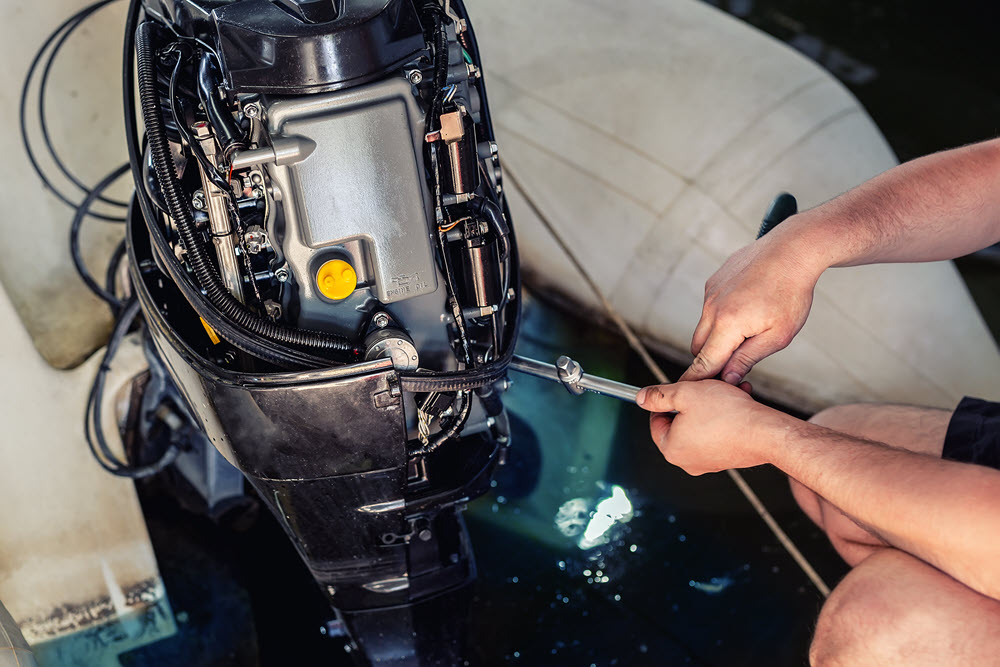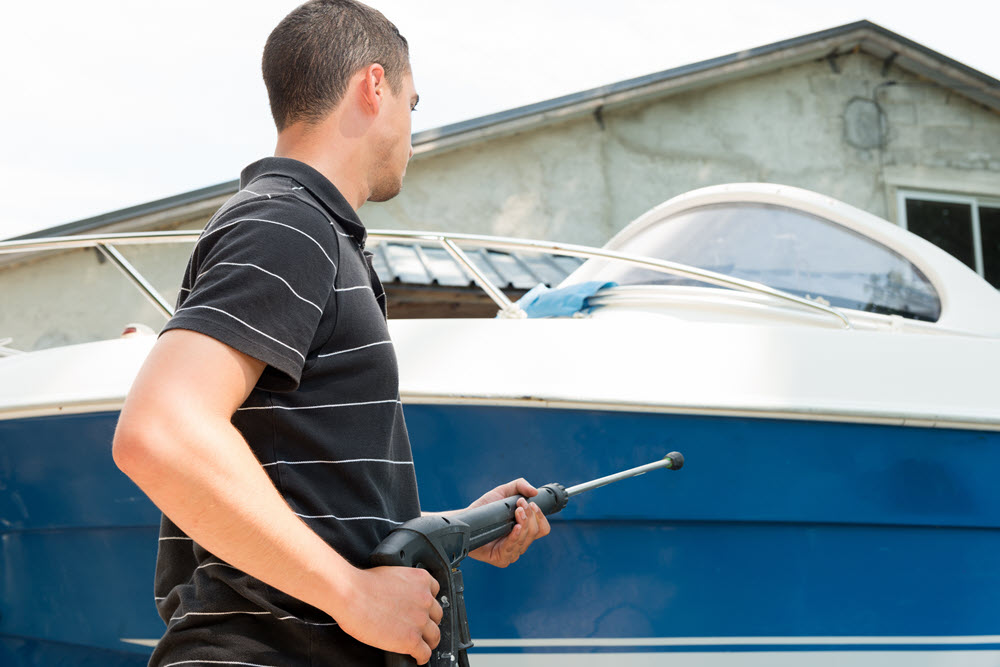
One of the essential boating skills you’ll need to learn is proper boat maintenance. Unless you use a full-service marina, a boat requires ongoing attention and monitoring to remain attractive, safe, and fully functional.
If you’re a new boat owner, you may not be familiar with every step of proper boat maintenance. Also, you may not be familiar with every aspect of boat maintenance. You need to not worry though for here are some of the most critical boat maintenance recommendations you need to take note of. Read on to learn more.
1. Taking Care Of Your Propeller

Keep your propeller in good working order to keep your boat running smoothly. While on the water, a well-maintained propeller will provide you with the most power, efficiency, and enjoyment. You’ll notice a difference in how your boat rides if you have an excellent propeller and maintain it properly.
When looking for damage, note any dings, nicks, scrapes, or dents. These are simple issues to identify, and if they aren’t too severe or widespread, they’ll require a quick repair. You can easily file them away or carefully fill them in if you have the appropriate experience. However, keep your propeller blades balanced because unequal weight distribution might hurt your boat’s overall performance.
A more complex type of damage to the spot is a bent blade. If the propeller comes into touch with rocks, sand bars, gravel, or other underwater hazards, it may bend out of shape.
Once on land and after accurately measuring them, determining if one of the blades of your boat’s propeller is bent is simple. If your propeller is damaged and you need a replacement, you can find a good range with USA shipping at Getaprop.com. Similar sites offer a variety of options too.
2. Take A Look At The Batteries And Clean Them
Batteries degrade with time, even when not in use. Entropy causes power drains and leaks regularly. If you ignore these challenges, you risk becoming stuck on open water with no lights or power due to battery failure.
As part of standard boat maintenance, battery checks should be performed at least once a season. You can use a voltage meter to detect how much charge remains in your boat’s batteries.
Determine how much charge your batteries generally use throughout a season ahead of time. Replace any batteries that are nearing their expiration date to be on the safe side. Check for any connections to the batteries as well. Clean these connections to guarantee that power gets to the places where it’s needed the most.
3. Store Your Boat Properly
Weather-related damage to your boat can be avoided with proper storage, especially during the winter. The goal is to keep ice, snow, and rain out while allowing enough airflow to prevent mildew accumulation. You should also prepare your boat for weeks of idleness so that it’s ready to sail when the time comes.
Outdoor storage is a popular alternative for sailboat owners who want to keep their boat’s masts erect. You must use an appropriate cover to protect your boat from the elements while being stored outside. Having your boat shrink-wrapped by a professional is the simplest way to keep it out. Your boat will be both covered and ventilated if you shrink-wrap it appropriately. Cover the boat with a tarp draped over a secured wooden frame.
Indoor storage is beneficial since it protects your boat from the elements and the sun. Consider renting a storage facility if your garage is too small to store your boat during the winter. Another possibility is dry-stack storage. Your boat will be housed on a rack in a covered structure if you keep it at a dry-stack facility; be sure the building is secure.
4. Keep The Engine Clean

You wouldn’t be able to go out without your boat motor. Maintaining your engine will keep you and your boat passengers secure while ensuring that everybody will have a pleasant time during excursions. Most boat engines should be serviced every few months or once a year, but consult your boat’s manual for more details and see if your boat insurance covers any possible repair needs.
Changing the filter and oil and emptying and replenishing the engine’s lubricant are standard annual maintenance procedures. You might also need to change parts like spark plugs or belts. Your chosen shop should thoroughly inspect everything and will be able to tell you what your engine needs.
Some boat owners prefer to complete this maintenance step at the closing of the boating season, after enjoying fishing for months, before setting their boats away for the winter. Everything will be ready to go when the time comes to get back out there. If you reside in an area where you can use your boat throughout the whole year, you’ll need these services at some point.
5. Maintain A Regular Cleaning Schedule

It’s vital to clean a boat when you own one properly. It’s necessary to clean your boat regularly to keep it from becoming extremely filthy. Clean the outside using a marine cleaner, scraping difficult paintwork or hull parts with a bit of soap, and then thoroughly washing all of the grime off. It’s also advised that you apply a scratch-resistant and ding-resistant protective coating.
While outer coats are tough, using the wrong detergents can damage or remove the protective layer, so stock up on a selection of boat-safe cleansers when shopping for new gear. It’s vital to protect your boat’s outer layer as much as possible because if it deteriorates, stains will become permanent and can require further effort in the future to fix the issue.
6. Carefully Inspect Each Hose
During a boat maintenance inspection, look for any hose leaks or cracks. The mentioned problems could be the consequence of old equipment being exposed to the elements, and if this is the case, it should be remedied as soon as possible to prevent further damage. Check all of the clamps on the vessel for looseness before going out to sea to avoid them falling off.
7. Do Deck Maintenance
Although it’s not necessary for effective boat operation, you should regularly maintain the deck and foredeck of your boat. Rinse and dry clean the deck and foredeck area after almost every use. Additionally, give them a good scrubbing every week or even at least once a month for the best results.
Takeaway
The abovementioned steps are essential for boat preservation. While they may appear time-consuming, they’ll make a significant difference throughout your boat’s life. If you love your boat and want to make it last long as you can, you’ll pay close regard to boat maintenance.
